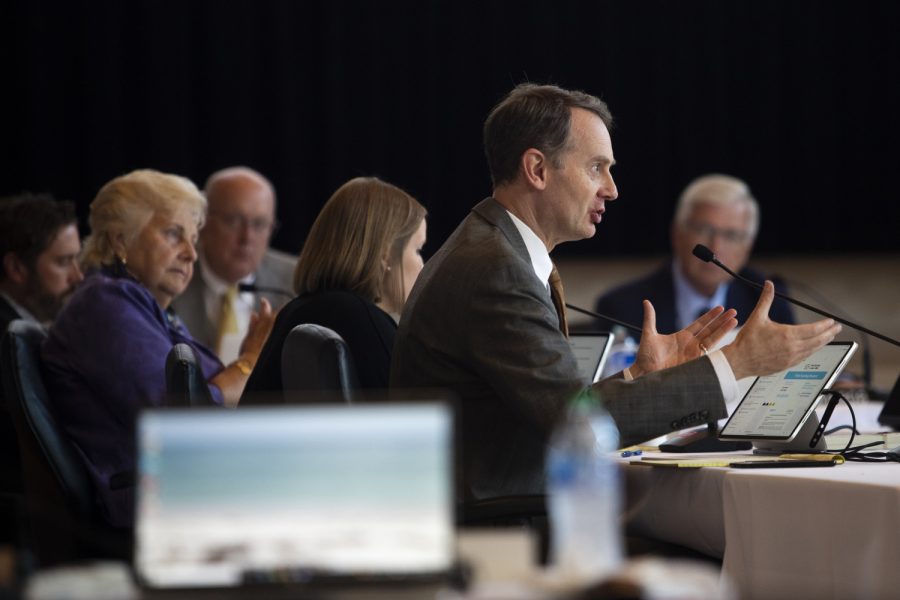Voters can expect to see an alternative tax option on the next general-election ballot.
In a special work session Monday, the Iowa City City Council unanimously agreed to place a special tax levy on the ballot on Nov. 4.
With the local-options sales tax, voters will decide whether they will approve the new additional 1 percent sales tax. If the proposal is approved, it will go into effect starting in 2015.
“I think this allows us more flexibility in budgeting,” Councilor Susan Mims said. “I am very satisfied with this decision.”
The council approved of a 50-40-10 model, in which 50 percent of the tax revenue will go toward property-tax relief, 40 percent will go to street and trail maintenance, and 10 percent will be allocated for affordable housing.
However, with a local-option sales tax model passed by the City Council, voters in the community will ultimately decide where the generated revenue will go by casting their votes.
The proposal will go on the ballot for all five jurisdictions in the Iowa City metro area. All money generated from the tax will stay within jurisdictions that vote to approve the model.
Many Iowa communities have adopted this tax levy, and Iowa City voters approved of a four-year local option sales tax in 2009 following the flood one year before.
At the last council work session, Councilors Michelle Payne and Kingsley Botchway said they wanted to further clarification on what affordable housing meant for the generated revenue.
Seven different items were put forward to the council as definitions for affordable housing, which included several different ways to identify landlords interested in housing low-income units, during Monday’s work session.
The councilors decided after hours of discussion to remain adaptable in definition.
“We didn’t select one item because as we go forward, and more innovative programs develop, we don’t want to be restrained,” Councilor Rick Dobyns said.
Using tax revenue for affordable housing is unprecedented, he said.
Councilor Jim Throgmorton said at the last council meeting he believed less of the proposed revenue should go toward property-tax relief, and that would free up more money for street maintenance and affordable housing.
With 40 percent proposed to fund street and trail maintenance, he said, he believed this model was better suited “for defending public right of way.” Throgmorton also said that the funding will go to more than just simple street repairs.
Mims, who represented the City Council on the Local Option Sales Tax Exploratory Committee, and City Manager Tom Markus stressed the importance last meeting of “what was palatable to the public.”
“This gives us ample money for property-tax relief and we certainly need more funding for street maintenance,” Mims said.
The local-option sales tax was presented as an alternative source to generate revenue in the wake of the most recent state of Iowa property-tax move.
The state legislation, which will affect the city’s ability to provide services to its citizens, will go into effect in 2015.
It is estimated that the state’s tax action will generate a $37 million loss for the city.
“We have a big educational job in front us to show the public why this is the best decision for Iowa City and Johnson County as a whole,” Mims said.






